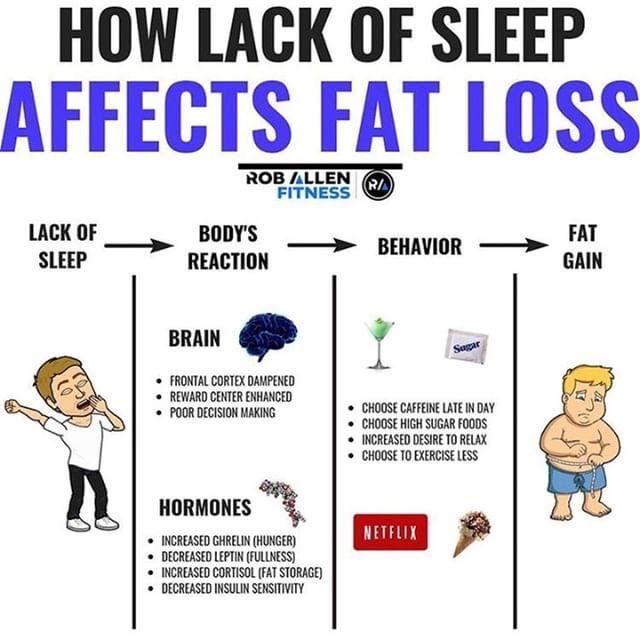Sleep is an essential function that allows the body and mind to recharge. When it comes to your physical and mental well-being, incorporating enough sleep into your routine might be one of the easiest habits to achieve a fountain of health and youth.

The human body needs between 7 and 9 hours of rest per night. Yet, millions of people do not get enough sleep.
Beauty sleep — is it real?
Here are just 5 of the fantastic benefits of beauty sleep.
- Beauty Sleep Will Make Your Skin Look Better
- Sleep Is a Great Energy Booster
- It Lowers Stress Levels
- Helps You Maintain a Healthy Weight
- Increases Life Expectancy
Beauty Sleep Will Make Your Skin Look Better
Your skin uses sleep hours to heal itself from environmental damages through the working day. As soon as you fall asleep, your skin gets the chance to recover. Your skin cells will regenerate up to three times faster at night than during the day.
Not getting enough sleep increases your cortisol levels and puts your skin in a pro-inflammatory state, resulting in tired-looking skin and puffiness around the eyes.
What is Cortisol?
Cortisol occurs naturally in the body and is highest in the morning Cortisol helps us wake up and face the day ahead.
Excess cortisol production increases the activity of the sebaceous glands.
These small glands release oils to protect the skin, so too much cortisol production leads to blocked pores and is also problematic for any underlying skin conditions, so it is vital to get your beauty sleep.
Collagen
When we sleep, the skin produces collagen, which is a protein that gives skin structure. As we grow older, the human body has less, which is why we get wrinkles, so getting enough sleep is essential.

Sleep Is a Great Energy Booster
A night without rest makes us tired and irritable the next day.
Everyone has experienced fatigue, a short temper, and a lack of focus following a poor night`s sleep.
While we are awake, the levels of glycogen in our brain decrease. Glycogen is an important fuel reserve involved in storing energy in the brain.
Glycogen levels are restored while we sleep. Therefore, it is essential to get enough rest to keep these levels high.
Glycogen prevents morning fatigue and helps you feel more awake and energised all day long.
You can ensure you receive quality sleep in some simple steps:
- Use the right mattress for your body type.
- Wind down, put aside some time before bedtime and read a book or listen to music.
- Avoid the use of electronic devices in the bedroom. It should be your quiet place with no distractions.
- Incorporate exercise into your daily routine, however, not before bedtime, as this will produce adrenaline.
- Try a relaxing routine such as yoga, reading, or a warm bath. Perhaps add lavender? – known to decrease blood pressure.
These activities should be enjoyable to help shed away the day’s worries. If you find that your thoughts are racing about tomorrow’s things to do, try writing them down on a piece of paper and placing it next to your bed. By doing this, you are helping your brain let go and help you relax.

It Lowers Stress Levels
Sleep and stress are closely linked. Stress can affect sleep quality, while insufficient sleep can increase stress levels.
Sleep is a powerful stress reducer and following a regular sleep routine calms the mind and restores the body. Increasing your sleep by 1-2 hours can show an improvement in just a day.
Sleep regulates your mood, improves your concentration, and sharpens your decision-making.
Many of us might have noticed that a night without enough sleep makes us feel irritable and stressed in several ways, from creating difficulty in our relationships to causing problems with job performance.

Being well-rested will help you achieve mental clarity and cope better with stress as you`ll become less sensitive to negative stimuli.
Lack of sleep can negatively impact your mental health, so it is essential to get enough sleep to reduce your stress levels.
You can improve your sleep quality by mindful meditation, exercise, adopting a healthier diet, lowering caffeine and alcohol intake, and avoiding taking work home.
Helps You Maintain a Healthy Weight
Sleep deprivation and weight gain are closely connected as poor sleep is associated with glucose intolerance and insulin resistance.
Sleeping less may disrupt circadian rhythms, disrupting your body’s response to insulin, leading to weight gain.
Leptin
Leptin is the hormone that tells your brain to stop eating. When you are sleep deprived, your body won`t produce enough leptin, which can cause overeating.
More than that, when you are tired, your metabolism is slower. Therefore, it will become lazier and burn fewer calories.

A study carried out by the sleep foundation of almost 70.000 women who were followed and monitored for 16 years found that those who slept five hours a night were 32 percent more likely to gain a lot of weight than women who slept at least 7 hours a night.
Increases Life Expectancy
Chronic sleep deprivation is known to put you at risk of severe medical conditions, including obesity, heart disease, and diabetes.
A solid night`s sleep is essential for your well-being, and research shows that a good night`s rest can boost both immunity and mental well-being.
If you are prone to catch every cold that is going around, your sleep time might be to blame, as prolonged exposure to lack of sleep can disrupt your immune system.

Studies have also suggested that people who usually sleep less than 5 hours a night have an increased risk of developing diabetes. Another survey conducted showed that people suffering from depression showed to have slept less than 6 hours a night.
Long-standing sleep deprivation also seems to be associated with increased heart rate and blood pressure, which may put extra strain on your heart.
Final thoughts
We can simply start with small changes such as getting the right mattress for your body type, making an exercise plan, or eating healthier.
Just one step at a time towards radiant skin, more energy, and overall better health










